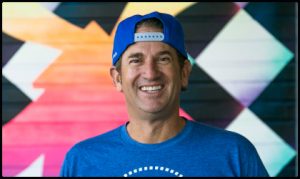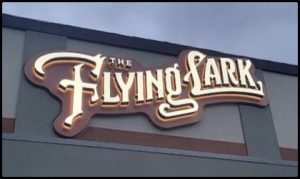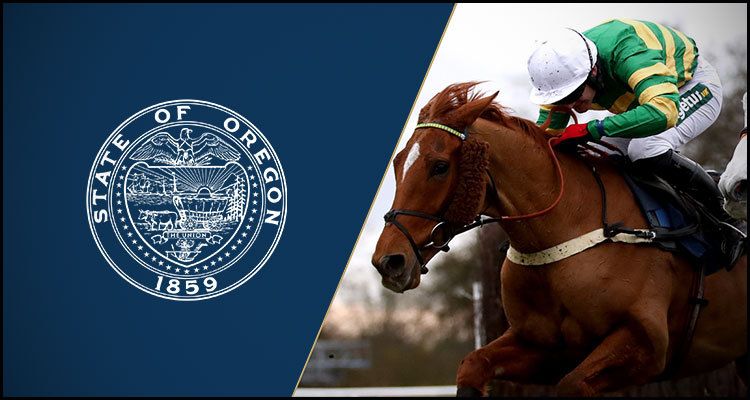An American billionaire is reportedly suing the Oregon Racing Commission over the regulator’s continued delay in issuing his Grants Pass Downs facility with a license to operate a range of historical horserace wagering games.
According to a report from Oregon Public Broadcasting, the lawsuit from Travis Boersma (pictured), who is the co-founder and Executive Chairman for Dutch Bros Coffee, was filed with the Josephine County Circuit Court and contends that the hold-up could be due to tribal concerns over the emergence of a new commercial gambling operation.
Contentious complement:
Boersma through his TMB Racing enterprise reportedly wants to premiere The Flying Lark destination resort on a plot of land adjacent to his Grants Pass Downs horseracing facility complete with a collection of 225 historical horserace wagering games. These units are already popular in states such as Kentucky and purportedly allow punters to wager on the outcome of previously-run horseracing contests.
Previous premiere:
However, the complaint from the 50-year-old entrepreneur reportedly contends that the Oregon Racing Commission has been dragging its heels when it comes to issuing The Flying Lark with a license for these games owing to ‘a handful of legal claims that some Oregon tribes have advanced about historical horserace wagering’. But the lawsuit purportedly moreover claims that such terminals allow players to wager against each other rather than the house and were successfully run at the western state’s former Portland Meadows facility for four years from 2015 without any regulatory issues.
reportedly contends that the Oregon Racing Commission has been dragging its heels when it comes to issuing The Flying Lark with a license for these games owing to ‘a handful of legal claims that some Oregon tribes have advanced about historical horserace wagering’. But the lawsuit purportedly moreover claims that such terminals allow players to wager against each other rather than the house and were successfully run at the western state’s former Portland Meadows facility for four years from 2015 without any regulatory issues.
Reportedly reads the lawsuit from Boersma…
“Throughout that time, upon information and belief, the Department of Justice did not take any action nor make any adverse public statements regarding the legality of Portland Meadows’ historical horserace wagering terminals.”
Obstinate opposition:
Voters in Oregon reportedly went to the polls in 2010 to uphold an existing ban on private casinos while state law also obliges regulators to ‘make a reasonable effort to cooperate with tribes in the development and implementation of programs of the state agency that affect tribes’. To add to Boersma’s exasperation and the leaders of six of the nine federally-recognized tribes in ‘The Beaver State’ wrote to Governor Kate Brown in October in order to express their concern over the plan to bring historical horserace wagering machines to The Flying Lark project.
The letter from the tribal heads reportedly read…
“We are at a critical moment where the state is about to approve the largest expansion of state regulated gambling in decades without public or legislative input. If something isn’t done, historical horserace wagering machines will arrive in Oregon without any serious discussion of their impacts on the state, on tribes and the citizens of both.”
Bridge-building bid:
Nevertheless, the petition from Boersma reportedly asserts that TMB  Racing reached out to several of Oregon tribes in the autumn on 2020 ‘regarding its vision for collaboration on gaming initiatives’ before later giving some representatives a tour of its under-construction facility. Despite this endeavor and many of these groups have since purportedly asked local lawmakers to temporarily pause any expansion in private gambling establishments until legislators can conduct an in-depth investigation into the role and future of gaming in the giant state.
Racing reached out to several of Oregon tribes in the autumn on 2020 ‘regarding its vision for collaboration on gaming initiatives’ before later giving some representatives a tour of its under-construction facility. Despite this endeavor and many of these groups have since purportedly asked local lawmakers to temporarily pause any expansion in private gambling establishments until legislators can conduct an in-depth investigation into the role and future of gaming in the giant state.
A statement from Boersma reportedly read…
“Through the entire process, I’ve made it a priority to meet and work with Oregon’s tribal leaders. It’s my hope that tribal leaders will once again come back to the table to identify ways in which we can work together. Until then, our team has made it clear we will continue to work to provide jobs and support the economy while following all laws and guidance.”



